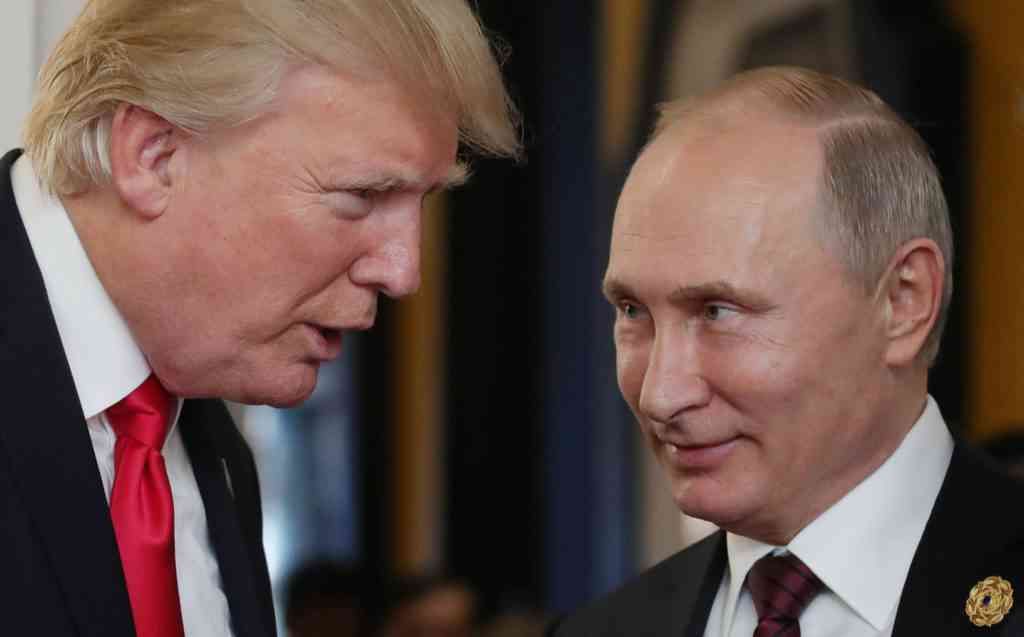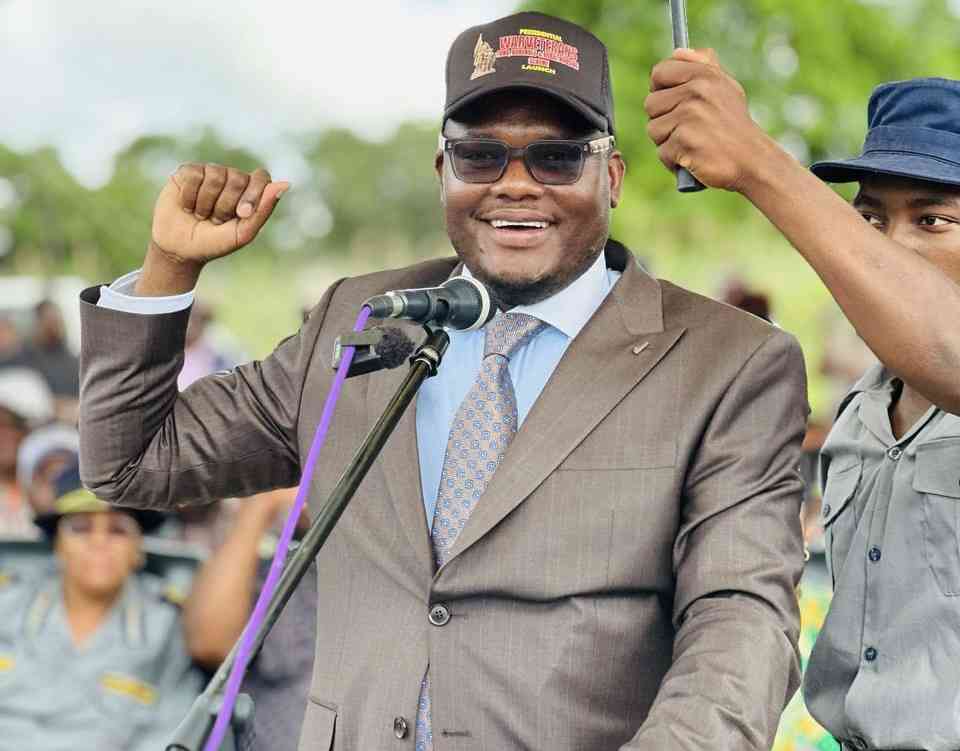
“THERE is a clear, present risk, particularly as Vladimir Putin does see himself as being at war with the West. The homeland is again (in peril) ... Air and missile attacks will potentially cause civilian casualties (in the United Kingdom) in very large numbers.”
Therefore, concludes General Sir Richard Barrons, the UK needs to bring back air raid sirens and air raid drills.
I am not making this up. Barrons, a former deputy chief of the Defence Staff, who retired from the British Army in 2016, is not just an ageing military fantasist longing to relive the Blitz he was too young to experience first time around.
He co-wrote the British government’s Strategic Defence Review, published last week, and the government adopted it wholesale.
It is not just the UK. In only four months, the Nato countries of Europe have managed to talk themselves into the belief that their continent is on the brink of war.
Almost the entire Russian army has been bogged down in Ukraine for three years and there is no other military threat in sight, yet the rhetoric suggests that Armageddon is just around the corner.
This is yet another consequence of that highly infectious disease, Trump Derangement Syndrome. The American president’s penchant for making random radical comments, often just for the hell of it, has a way of panicking other countries into making policy decisions that are premature or just plain wrong.
For example, the European members of Nato are now convinced that the United States is cancelling its eight-decade commitment to the defence of Europe.
- The brains behind Matavire’s immortalisation
- GCC grinding to a halt
- Letter from America: Is former president Donald Trump a hero or villain?
- Red Cross work remembered
Keep Reading
In particular, they think that the US is ending its guarantee of nuclear retaliation against a Russian attack, which enabled all of them (except Britain and France) to avoid getting nuclear weapons of their own.
They are right to be concerned about all that, because that is certainly being considered by some factions in the Trump circus. But it is far too early to base policy on these concerns, because Trump himself has no idea where he is going with all this.
Could the US end up in a de facto alliance with Russia when the dance ends (or at least pauses for a while)?
Unlikely but possible, given Trump’s highly personalistic style and his bizarre but undeniably very close relationship with the Russian leader.
What would become of the existing Russian-Chinese alliance in such a case? Hard to say, but Putin might prefer an American alliance that would deliver Ukraine into Russia’s hands.
That would be a more equal partnership (assuming continuing American decline) than Russia’s current precarious alliance with a Chinese giant that has aspirations on Russian territory.
Does that then leave China free to join with Europe and the more or less free-trading countries of Asia in an effort to preserve or restore the rules-based, law-abiding world order that is under attack by Russia and the US? The possible permutations and combinations are almost endless.
It could even all end up back where it started, with Nato’s trans-Atlantic dimension intact, including the US nuclear guarantee for Europe.
After all, Trump’s ambassador to Nato, Matthew Whitaker, is demanding that all Nato members start spending 5% of their GDP on defence. (The US itself only spends 3,4%.)
So might Trump really want a powerful Nato in Europe in his moments of clarity (assuming he has some), or is he just trying to sucker America’s trade rivals in Europe into weakening themselves by overspending on defence?
It is best not to overthink these alternative futures, and not to jump to conclusions too fast.
It is unfortunately true that flurries of last-minute changes in alliances often happen just before the great powers go into a great war, but that is another reason not to rush into radical changes now. This will require a high tolerance for make-believe on the part of Europe, but wait-and-see is probably the continent’s least bad strategy for the time being.
The European members of Nato should do everything possible to sustain Ukraine’s resistance even when Trump cuts it off again, and rebuild their own defensive capabilities as fast as possible in case Trump does take the Russian option.
But there is no need to practice bleeding, as the soldiers say: try to sustain the fiction of a united Nato as long as possible.
And if you are in need of consolation as the talk of war swamps the news, remember that the only genuinely revisionist great power at the moment is Russia.
People will tell you China is revisionist too, but that is untrue apart from Taiwan. Beijing believes it can overtake the US by economic means alone, and with Trump’s help it may be right.
Dyer is a London-based independent journalist. His new book is titled Intervention Earth: Life-Saving Ideas from the World’s Climate Engineers. His previous book, The Shortest History of War, is also still available.










